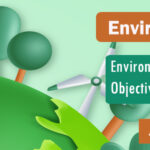Set 3 | Important Environment and Sustainable Development MCQs
Important Environment and Sustainable Development MCQs. Environment and Sustainable Development are pivotal aspects of Environment and Ecology, serving as a cornerstone for success in competitive exams like Civil Services, State exams, SSC, Railways, Banking, and more. Mastering these subjects offers a unique advantage, allowing you to gain invaluable insights into the country’s environmental legacy. With a focus on Environment, Biodiversity, and Ecology, this knowledge not only sharpens your competitive edge but also equips you to excel in these challenging exams.
| MCQs on Environment and Sustainable Development – Objective Questions and Answers |

Q21. A country’s natural capital included all of the following except: (U.P.P.C.S.(Pre)2012)
[A] Forest
[B] Water
[C] Roads
[D] Minerals
View Explanation
Correct Answer is C.
A country’s natural capital typically includes:
- Forests
- Water resources (rivers, lakes, groundwater)
- Minerals and fossil fuels
- Biodiversity (flora and fauna)
- Soil and agricultural land
- Air quality and atmosphere
The exception would generally be something that does not naturally occur or is not derived from the environment, such as: Human-made infrastructure (e.g., roads, buildings)
Q22. What is the theme for ‘World Environment Day 2018’? (U.P. R.O./A.R.O. (Pre) 2017)
[A] Connecting People to Nature
[B] One World, Our Environment
[C] Beat Plastic Pollution
[D] Save Water for Future
View Explanation
Correct Answer is C.
- India was the global host of 2018 World Environment Day (5 June). The theme of this year’s edition was ‘Beat Plastic Pollution’. China was the global host of 2019 ‘World Environment Day’. The theme for 2019 was ‘Air Pollution’. In 2020, theme of World Environment Day was ‘Biodiversity’. The theme of 2021 World Environment Day was ‘Ecosystem Restoration’, Pakistan acted as global host of the day.
- The theme for World Environment Day 2024 is “Solutions to Plastic Pollution,” emphasizing the urgent need to address the plastic pollution crisis through sustainable practices, innovation, and global cooperation. This theme continues to promote the global fight against plastic pollution and its impact on ecosystems and human health.
Q23 The main role of solar radiation is in – (U.P.P.C.S. (Pre) 2000, U.P. Lower Sub. (Spl.) (Pre) 2004)
[A] Carbon cycle
[B] Hydrogen cycle
[C] Water cycle
[D] Nitrogen cycle
View Explanation
Correct Answer is C.
- The energy from the sun is what primarily drives the water cycle.
- Through the evaporation of water from lakes, rivers, oceans, and even the soil, this solar radiation powers the cycle. Water vapor and clouds are created, and eventually the water droplets accumulate enough mass to return to Earth.
- Since there is exactly the same amount of water in the hydrosphere today as there has always been in the earth system, the water cycle is effectively a closed system.
Q24 National Environmental Engineering Research Institute is situated at: (U.P.P.C.S. (Pre) 2012, U.P.P.C.S. (Pre) 2014)
[A] Bangaluru
[B] Hyderabad
[C] Nagpur
[D] New Delhi
View Explanation
Correct Answer is C.
- The National Environmental Engineering Research Institute (NEERI) is a research institute created and funded by the Government of India. It was established in Nagpur in 1958 as Central Public Health Engineering Research Institute (CPHERI) with focus on water supply, sewage disposal and related diseases and to some extent on control of industrial pollution.
- NEERI is a pioneering laboratory in the field of environmental science and engineering and part of the Council of Scientific and Industrial Research (CSIR).
- NEERI has five zonal laboratories at Chennai, Delhi, Hyderabad, Kolkata and Mumbai. NEERI falls under the Ministry of Science and Technology, Government of India.
Q25 When and where the National Environment Engineering Research Institute (NEERI) was established: (U.P. P.C.S. (Mains) 2017)
[A] 1970, Dhanbad
[B] 1958, Nagpur
[C] 1956 ,New Delhi
[D] 1960, Chennai
View Explanation
Correct Answer is B.
- The National Environmental Engineering Research Institute (NEERI) was established in 1958. It is located in Nagpur, Maharashtra, India.
- NEERI is a constituent laboratory of the Council of Scientific and Industrial Research (CSIR) and focuses on research and development in the areas of environmental science and engineering.
- The institute plays a crucial role in addressing environmental challenges and promoting sustainable development in India.
Q26 What is important for Sustainable Development ? (U.P. Lower Sub. (Pre) 2004)
[A] Conservation of biological diversity
[B] Prevention and Control of Pollution
[C] Decreasing poverty
[D] All of these.
View Explanation
Correct Answer is D.
- Conservation of biological diversity, prevention and control of pollution, decreasing poverty, all are important for Sustainable Development.
- It is imperative for achieving the goal of sustainable development to make policies on information about our environment and ecology. Presently sustainable development has become an alternative approach to the theories of development.
- Certain information are required for policy formulation on sustainable development.
Q27. The ‘Common Carbon Metric’ supported by UNEP, has been developed for (I.A.S (Pre) 2021)
[A] assessing the carbon footprint of building operations around the world
[B] enabling commercial farming entities around the world to enter carbon emission trading
[C] enabling governments to assess the overall carbon footprint caused by their countries
[D] assessing the overall carbon footprint caused by the use of fossil fuels by the world in a unit time
View Explanation
Correct Answer is A.
- Common carbon metric for measuring energy use and reporting greenhouse gas emissions from building operations. Leading experts from around the world have, through extensive international cooperation, developed a universal method of measuring a building’s carbon footprint.
- The Common Carbon Metric is the calculation used to define measurement, reporting, and verification for GHG emissions associated with the operation of buildings types of particular climate regions.
- While it is not a building rating tool, it is consistent with methods for assessing the environmental performance of buildings used globally such as the World Business Council for Sustainable Development (WBCSD), World Resources Institute (WRI) GHG Protocol, etc.
Q28. Which one of the following is not the objective of smart city development? (U.P. P.C.S. (Mains) 2017)
[A] Good governance
[B] Clean green city
[C] Stabilizing quality of life
[D] Smart mobility
View Explanation
Correct Answer is C.
The Smart City Mission is an innovative and new initiative by the Government of India to drive economic growth and improve the quality of life of people by enabling local development and harnessing technology as a means to create smart outcomes for citizens.
The core infrastructure elements of the mission are-
- Adequate water supply.
- Assured electricity supply.
- Sanitation including solid waste management.
- Efficient urban mobility and public transport.
- Affordable housing, especially for the poor.
- Robust IT connectivity and digitalization.
- Good Governance, especially e-Governance and people’s participation.
- Sustainable environment.
- Safety and security of citizens, particularly women, children and the elderly.
- Health and Education.
Q29. ‘Earth Summit’ was held at: (Uttarakhand U.D.A./L.D.A. (Pre) 2003)
[A] Cairo
[B] Rio-de-Janeiro
[C] Durban
[D] Kyoto
View Explanation
Correct Answer is B.
- The first Earth Summit by United Nations Conference on Sustainable Development was held in Rio-de-Janeiro in 1992. In 2012, the United Nations Conference on Sustainable Development was also held in Rio and is also commonly called Rio+20 or Rio Earth Summit 2012.
Q30. What was the title of the Rio -20 declaration? (Chhattisgarh P.C.S. (Pre) 2015)
[A] The future we want
[B] The future we seek
[C] The future we have
[D] The future we see
[E] None of these
View Explanation
Correct Answer is A.
- The United Nations Conference on Sustainable Development (UNCSD) also known as Rio 2012, Rio+20 or Earth Summit 2012 was the third international conference on sustainable development hosted by Brazil in Rio-de-Janeiro.
- The primary result of the conference was the non-binding document “ The future we want” a 49-page action plan.
Related articles:
- Set 1 | Important Environment and Sustainable Development
- Set 2 | Important Environment and Sustainable Development
- Set 4 | Important Environment and Sustainable Development
- Set 5 | Important Environment and Sustainable Development
- Set 6 | Important Environment and Sustainable Development
- Set 7 | Important Environment and Sustainable Development
- Set 8 | Important Environment and Sustainable Development
- Set 9 | Important Environment and Sustainable Development



